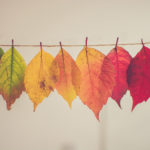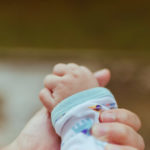In my first blog post, I gave a little background on myself and my mental health. In my next few posts, I’ll be drilling down on some of the details of my personal mental health journey. My focus today is on bibliotherapy – also known as self-help books, though I prefer to call them self-care books. I’m a writer by trade, and before I was a writer, I was a reader. I took to bibliotherapy quickly and have stuck with it persistently ever since. I’ll be discussing some of my favorite self-care books in this post, which I’ve broken up into categories starting with:
Books Related Directly to Therapy
These are some helpful supplemental books I’ve read as companions to my different therapies over the years. They helped me better understand the work I was doing in my therapy sessions and gave me information to focus on between meetings with my therapist. I believe the time I devoted to reading these books made my therapy more productive as well.
-
Feeling Good: The New Mood Therapy by David D. Burns M.D.
This was the first self-care book I read – my introduction to bibliotherapy. My first therapist recommended I check it out, and Feeling Good became my textbook for learning about the Cognitive Behavioral Therapy (CBT) he was walking me through in our sessions. David Burns gives extensive background and explanation of CBT practices, which I found helpful as a novice. When I had to move away from my first therapist, I was so grateful I’d read and kept this book. It provided me with a foundational understanding of the therapeutic practices of CBT, and that allowed me to continue my growth and healing independently while I searched for a new therapist in my new city.
-
Feeling Good Together: The Secret to Making Troubled Relationships Work by David D. Burns M.D.
This book simply takes the CBT concepts from Feeling Good and applies them to relationships. I say simply, but that may be a misnomer. There is nothing simple about improving our relationships, which can often be a point of hardship for those of us dealing with mental illness. I know I needed some help in that area when I was reading this book. I found Feeling Good Together both helpful and hopeful. It was heartening to have strategies for dealing with the issues that inevitably arise in any relationship.
-
Getting Past Your Past: Take Control of Your Life with Self-Help Techniques from EMDR Therapy by Francine Shapiro, Ph.D.
Don’t tell the other two books in this category, but this one is my favorite of the trio. CBT was my initiation into the world of therapy, but EMDR (Eye Movement Desensitization and Reprocessing) was my savior. I did EMDR therapy for my deep trauma. It helped get to the root of my problems. I am forever grateful for my EMDR therapy, but before I started, I was terrified of it. To assuage my fears, I decided to read a whole book on EMDR before I’d even had my first session. I’d gotten a lot out of my CBT books, and I hoped learning about EMDR would make everything seem less intimidating. In Getting Past Your Past, Francine Shapiro does a wonderful job explaining what exactly EMDR is, as well as how and why it works. This deeper knowledge really helped me understand and become more comfortable with the therapy overall.
Of course, most self-care books aren’t tied to any specific therapy at all. I have a whole group of books, for example, devoted to a single author:
Brené Brown
Brené Brown is a research professor who has spent more than a decade studying vulnerability, courage, authenticity, and shame. If you want to check her out before you order a book, she has some wonderful TED Talks that cover similar topics to her books.
Brené Brown Ted Talks and Video Specials
- The Power of Vulnerability (Ted Talk)
- Listening to Shame (Ted Talk)
- The Price of Invulnerability (TedxKC)
- Brené Brown: Call to Courage (Netflix)
Brené Brown Books
Brené has authored some spectacular books.
-
Daring Greatly: How the Courage to Be Vulnerable Transforms the Way We Live, Love, Parent, and Lead by Brené Brown Ph. D., L.M.S.W.
This was the first Brené Brown book I read. Dr. Brown specializes in the study of shame. This book contains pointed insights from her years of study. She has a gift for boiling down difficult concepts into plain language and relatable narratives, and she writes with the voice of the everywoman to make her books accessible to anyone. If the previous group of books was a bit too dense and dull for you, Daring Greatly may be more your style.
-
The Gifts of Imperfection: Let Go of Who You Think You’re Supposed to Be and Embrace Who You Are by Brené Brown Ph. D., L.M.S.W.
As I was reading Daring Greatly, I ordered two more Brené Brown books. This was one of them. Of the three books of hers that I’ve read, this one probably resonated the most with me. I’m still actively internalizing the lessons of self-love, acceptance, forgiveness, and compassion that I learned from The Gifts of Imperfection. As someone who was bullied a lot growing up, I became quite insecure about every aspect of myself and sought to hide any potential point of weakness others could attack. I tried to appear perfect in an attempt at self-preservation. Ironically, the practice almost killed me. It’s taken me a very long time to accept and be my imperfect self.
-
I Thought It Was Just Me But It Isn’t: Telling the Truth about Perfectionism, Inadequacy, and Power by Brene Brown Ph. D., L.M.S.W.
This book was written specifically for and to women – a fact I did not know when I ordered it. It is entirely possible that all of Brené Brown’s books are actually written for a female audience, and I just didn’t notice until that fact was stated outright within the pages of this one. Having already paid for and received I Thought It Was Just Me But It Isn’t, I decided to say to hell with toxic masculinity (more on that in my next blog post) and read the book anyway. I can happily report that this was the correct decision. Many of the issues the book discusses are applicable across the gender spectrum, and the ones specific to women would benefit any man to learn more about.
Now, Brené Brown might not be everyone’s cup of tea. Maybe you like your self-care a bit off the beaten path…
 Alternate Approaches
Alternate Approaches
The books in this section are still devoted to self-care and making progress toward healing from our mental and emotional wounds, but they approach the problem slightly differently than the books in the previous sections. They’re a bit more irreverent and alternative. If you’re an outside-the-box thinker who likes to defy conventions, these books may be right in your wheelhouse.
This is a book for people who aren’t sure about therapy, or perhaps readers who have had negative experiences with therapy in the past. John Kim breaks things down in a very unique way, complete with his own terminology and strategies, which makes this book seem different and exciting. Kim is also a big proponent for the necessity of community, and he has built online communities for his readers to connect and share their stories across many social media platforms. While reading The Angry Therapist, I found Kim’s realness refreshing. He’s crass and honest and sometimes abrasive, but he cuts straight to the point without any time spent on extra fluff. This approach makes the book quite slim, so if you’re new to bibliotherapy and looking to dip your toe in the water, this quick read could be a great place to start.
-
You Are A Badass: How To Stop Doubting Your Greatness and Start Living an Awesome Life By Jen Sincero
My baby sister recommended this book to me. She has a particular affinity for the ra-ra cheerleader subgenre of self-care books, probably because they match her effervescent personality. Just right off the bat, this book is an absolute blast. Jen Sincero’s super conversational, friendly voice is a breeze to read, and she spends the entire book gassing up the reader, so it’s almost impossible to be in a bad mood as you’re reading. Sincero focuses specifically on stopping the cycle of self-sabotage in our lives and offers detailed advice and strategies for living the life you’ve always wanted. You Are A Badass is all about big inspiration for making big dreams come true, so it might not be the best book for someone at the very beginning of their journey toward mental health. For those later in their journey, however, I believe this book can be extremely valuable.
All the books listed so far are just scratching the surface of what’s out there. Find what fits your personality! I’m a huge nerd, so I especially enjoyed the books in the next category
 Brain Science
Brain Science
These books aren’t actually self-care books at all. We’ve moved away from directly helpful books to indirectly helpful ones. The two books in this group are all about brain function. I’m including them because I found that learning about the brain in general helped me better understand my own brain, which doesn’t exactly work 100% correctly all the time. A deeper understanding of how the brain works helped me develop strategies and workarounds for some of my own personal brain issues, and I’d suggest these books to anyone interested in doing the same.
-
How Emotions are Made: The Secret Life of the Brain by Lisa Feldman Barrett
I heard about this book from the Invisibilia podcast on NPR, which I also highly recommend. This book is not primarily or even secondarily concerned with self-care. It is, however, full of fascinating information about cutting edge brain studies. As such, it offers keen insights that have yet to infiltrate any of the self-care books I’ve ever read (and I have obviously read my share). Lisa Feldman Barrett has been doing amazing work in her field, and the findings she lays out in How Emotions are Made are fascinating. If you’re someone who is interested in their own brain chemistry and how the brain works, you may find this book as illuminating as I did.
-
Thinking Fast and Slow by Daniel Kahneman
This is the furthest from the self-care genre we will stray in this blog post. I teach freshman composition at a local community college where I live, and one of my students recommended this book to me. Rather, I should say that this student hounded me until I finally cracked at the end of the semester, bought the book, and promised to read it. Thinking Fast and Slow is full of wonderful insights about the way our minds work and how our decision-making processes play out in real-time. I found this useful because I often worry that my mental illness causes my decision making process to play out quite poorly. I found it helpful to learn about the underpinnings and inner workings of these processes. Daniel Kahneman’s text helped me go from thinking fast to thinking slow during my most difficult moments, which has helped me improve various aspects of my life, from handling work stress to conflict resolution with my partner. Even though this isn’t technically a self-care book, I carry the lessons it taught me everywhere I go.
And finally, because I am a creative at heart, I’ve created one more category:
Creativity and Humanity
These are the most specifically esoteric books on the whole list. They’re directed at creatives, so you may not think they’re for you at first, but I maintain that everyone is creative in their own important ways. I also happen to know for a fact that many of the lessons I’ve learned about my writing can be directly applied to my own life quite seamlessly. Finally, in my humble opinion, the best book of the whole bunch happens to be in this grouping, so let’s dive in.
Not that anyone asked me (no pun intended), but I think this is the best book on the whole list. If you only read one book from this post, I recommend making it this one. A dear friend bought this book for me as a gift. The author, Amanda Palmer, fronted the band The Dresden Dolls for years. In 2010, she left her record label and crowdsourced an entire album on Kickstarter, back when making a Kickstarter was a brand new thing to do. Her book is ostensibly about crowdsourcing and online/social media marketing, but really it’s a book about gratitude, relationships, and growth. Palmer writes about vulnerability and intimacy, and how those things are inextricably intertwined. It’s a perfectly honest memoir, lovely in its boldness and unashamed of human flaw. I found Palmer’s unabashed honesty inspiring and liberating. This is easily one of my favorite books I’ve ever read.
-
Big Magic: Creative Living Beyond Fear by Elizabeth Gilbert
My baby sister recommended this book to me as well, and yes, it’s written by the woman who wrote Eat, Pray, Love, but don’t be a pretentious twit. Big Magic is targeted specifically at artists and creatives, but I believe many of these life lessons extend far beyond the realm of art. The principles espoused by Gilbert in these pages – being open and confident, putting yourself in a position to do what you love, loving yourself so you can truly enjoy living your life every day – these are goals everyone can strive toward. My favorite parts of this book, however, are the pages where Gilbert talks about confronting our fears, a concept applicable to anyone’s recovery journey.
All of these books share one quality: I’ve read them. They represent a drop in the ocean of the self-care genre. There seems to be an almost unlimited supply of self-care books out there these days. Ask your therapist for some suggestions, too! Do you have a self-care book that you have found helpful? Share them with me in the comments. I would love to hear what has worked for you!
About the Author

Derek Cowsert
Derek Cowsert is an English professor, freelance writer, and public servant living in Springfield, Missouri.


